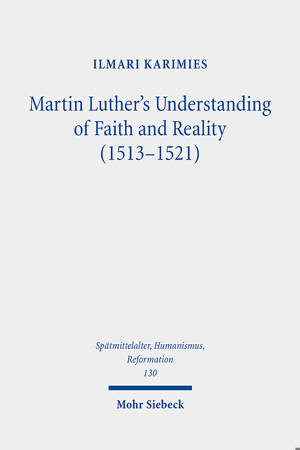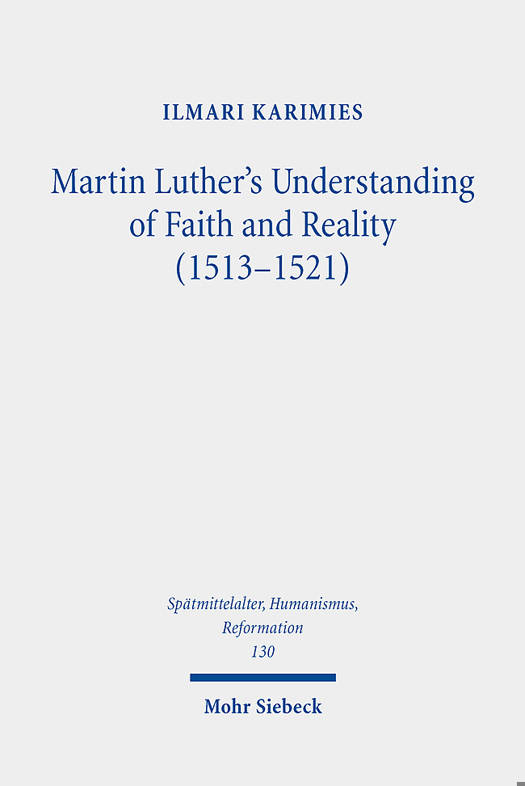
- Afhalen na 1 uur in een winkel met voorraad
- Gratis thuislevering in België vanaf € 30
- Ruim aanbod met 7 miljoen producten
- Afhalen na 1 uur in een winkel met voorraad
- Gratis thuislevering in België vanaf € 30
- Ruim aanbod met 7 miljoen producten
Zoeken
Martin Luther's Understanding of Faith and Reality (1513-1521)
The Influence of Augustinian Platonism and Illumination in Luther's Thought
Ilmari Karimies
€ 135,95
+ 271 punten
Omschrijving
Ilmari Karimies investigates Martin Luther's understanding of reality and faith. He examines Luther's understanding of reality from three perspectives: firstly God as the self-giving highest good uniting opposites and hiding beneath them; secondly the visible and invisible world; and thirdly human beings as tripartite (body, soul, spirit) and bipartite (flesh-spirit). The author explores the cognitive conflict between these in relation to spirit's grasping of God and the invisible world with reference to Augustinian Platonism. He analyses aspects of faith from the perspective of the theory of divine illumination and shows that Luther represents a realistic Augustinian view. Faith functions as the theological intellect, grasping the invisible world and showing human beings the future good in a manner similar to the medieval notion of ecstatic knowledge. It differs from vision in glory because of sin, as mixed with humanity, and as partial knowledge.
Specificaties
Betrokkenen
- Auteur(s):
- Uitgeverij:
Inhoud
- Aantal bladzijden:
- 405
- Taal:
- Engels
- Reeks:
Eigenschappen
- Productcode (EAN):
- 9783161565311
- Verschijningsdatum:
- 1/08/2022
- Uitvoering:
- Hardcover
- Formaat:
- Genaaid
- Afmetingen:
- 231 mm x 155 mm
- Gewicht:
- 2535 g

Alleen bij Standaard Boekhandel
+ 271 punten op je klantenkaart van Standaard Boekhandel
Beoordelingen
We publiceren alleen reviews die voldoen aan de voorwaarden voor reviews. Bekijk onze voorwaarden voor reviews.











